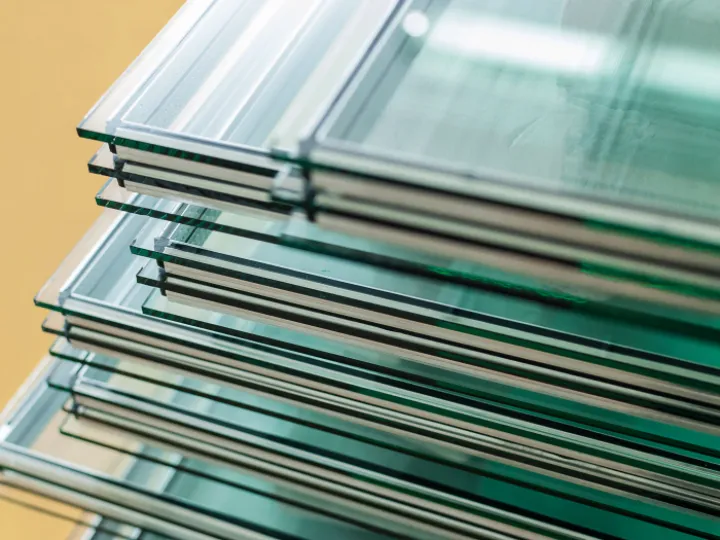How double glazing works
Energy efficiency is a top priority for homeowners these days. Not only is an energy-efficient home more pleasant to live in, but it can also cut household bills dramatically and even add to the value of your home should you wish to sell.
With governments and other agencies pledged to reduce our carbon footprint and the need to switch from fossil fuels, it's good to know there are ways to improve our homes' efficiency in ways that can save us money.
Double-glazed windows are among the best and most cost-efficient ways to prevent heat loss and keep homes warm. So, they are one of the first things to consider when evaluating the biggest benefits of home improvements.
Coupled with other modern glass technologies such as Low-E coatings, UV filters, and thermal breaks in frame manufacture, double glazing offers thermal performance unthinkable a generation ago.
Modern window manufacturers use cutting-edge technology to ensure products offer A-rated thermal efficiency to keep homes warm and safe all year round.
Heat transfer through the glass
Heat always flows from warmer to colder areas. How quickly this happens depends on several factors but is usually expressed through the U-value of the material involved in the heat transfer – a higher U-value results in a lower heat loss.
Glass is a good conductor of heat, so thermal energy flows relatively quickly through the glass, from the warmer surface to the cooler. This gives it a low U-value and a relatively high heat loss. When the cooler glass surface is outside, heat is also exchanged with the outside air through conduction and convection.
The temperature difference, wind speed and the emissivity level of the glass type mainly determine these heat transfers. An average home is estimated to lose around 10% of its heat through glass windows. Most heat loss is from radiation through the glass, but conduction through the frame and gaps also play a part.
Of course, heat exchange can also work the other way. On a hot, still, sunny day, sunshine striking the outside surface of a pane of glass may well be several degrees higher than the inner surface. The radiated heat from the sun's rays then flows through the glass from the outside to the inside, making the home hot and stuffy.
What is double glazing?
Double-glazed windows have two panes of glass mounted a small distance from each other in a sealed unit. The sheets of glass are separated by a spacer bar to create an air gap. The window's thermal efficiency is much improved if the gas between the two glass panes has a high U-value.
As air cannot circulate in the narrow gap between the glass panes, it cannot lose heat through convection. The trapped air slows the heat transfer from warm to cold. Different gases have differing levels of heat conductivity, and many manufacturers choose argon or krypton to fill the space between panes.
Heat transfer in argon is more than 30% lower than in ordinary air, providing an even more efficient thermal cushion. It works the other way too. If you have ever sat in a conservatory on a sunny day, you will appreciate how hot it can get. It's called solar gain and is caused by short-wave infrared radiation from sunlight being absorbed by the glass and radiated and long-wave infrared.
The trapped layer in a double-glazed window helps insulate against the radiated heat by only about 10% compared to a single-glazed window. To combat solar gain from large areas of glass, it is necessary to use glass with a low emissivity (low E) coating. The low-E glass reflects the shorter wave radiation away from the glass without darkening or shading.
Benefits of double glazing
Installing double-glazed windows has other benefits than reducing heat loss and cutting energy bills. They result in reduced noise as, like with heat, the gas-filled pocket acts as a buffer against sound waves.
Double glazing can be especially useful in a noisy neighbourhood or near a busy road. A little advertised aspect of double glazing is the increased security of your home. Unwanted intruders will find it much more challenging to break through two panes of glass than one. This is especially true for laminated or toughened glass used in double-glazed windows .
Houses with double glazing usually enjoy increased value in the property market. Not only are homes more comfortable to live in, but they also enhance their value to potential buyers. The insulation afforded by double glazing also helps to protect against damage to furniture and fitting caused by solar radiation.
The protection is increased if the glass has a low-E coating or a UV filter film. Single-glazed windows can suffer from condensation. Water droplets form when the glass is cooler than the air inside the house. It causes moisture in the warm air to condense on the cool windowpane. With double glazing, the inside pane of glass remains much warmer, so condensation is much less of a problem.
More on windows and glazing
Different window glass types
Energy-efficient windows
Taking care of windows
Choose a FENSA installer
CALL 01606 863553
for a free quote on new windows
Select Window Systems
Phone: 01606 863553
Email: hello@swsonline.co.uk
Visit: Unit 2, Woodford Court, Winsford, Cheshire, CW7 2RB
Cheshire doors and windows.
Window and door installations across Cheshire.
Visit Our Cheshire Showroom
Disclaimer
Select Window Systems accepts no responsibility or liability for any damages or costs of any type arising out of or in any way connected with your use of this website. Select Window Systems cannot be held liable for any actions taken in reliance on any published content, which is for information purposes only.


